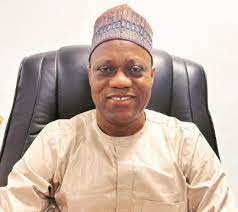The National Bureau of Statistics (NBS), the agency responsible for national statistical system coordination in Nigeria, on Thursday reported that 133 million Nigerians, representing 63 percent of the 216 million Nigerians were multidimensionally poor, despite sustained efforts by the governments to alleviate poverty in the country.
The Bureau gave this figures in the ‘2022 Nigeria Multidimensional Poverty Index (MPI) Survey Report’ launched by President Muhammadu Buhari in Abuja.
According to the agency, the MPI Survey Report which was produced with support from the United Nations, UNDP, UNICEF, EU, Canada, OPHI, and other agencies, covered respondents from all the 109 senatorial districts nationwide.
The report findings indicated that the multidimensional poverty remained higher in the rural areas with 72% of the people are pure compared to 42% in urban areas.
The MPI Survey also indicated that while 70% of the population live in rural areas, the rural communities are home to 80% of the poor whose intensity of poverty of 42% remained higher too than the 37% of the people in urban areas.
An analysis of the MPI Survey findings showed that out of the 65% Nigerians that are multidimensionally poor, 86 million or 65% are in the North compared to the nearly 47% in the South.
In addition, the NBS reported that poverty levels across the 36 states significantly varied, with the incidents of multidimensional poverty ranging from a low 27% recorded in Ondo State to a high of 91% in Sokoto State.
The Bureau further clarified that 29% of all school-aged children were not attending school, and 64% of all out of school children are poor, which implied that 27% of all school-aged are both poor and out of school.
In his welcome address during the launch the MPI Survey, the Statistician-General of the Federation/NBS’ CEO, Prince Adeyemi Adeniran, said the NBS had been working on developing the MPI measure since 2021, with several efforts completed under the UNDP Human Development Index Framework.
According to him, in 2020, at the height of the COVID-19 pandemic, the Bureau commenced plans to conduct the first ever Standalone MPI Survey in Nigeria which was eventually implemented in 2021/22, culminating in the 2022 MPI Survey results launched today.
He explained: “This is arguably one of the largest surveys to be undertaken by NBS, with a sample size of 56,610 households across 36 States and the Federal Capital Territory.
“Unlike the Global MPI which uses 3 dimensions (Health, Education and Living Standards), we added a fourth dimension, Work and Shocks in the 2022 MPI Survey. This fourth dimension as well as other added variables such as food security, water reliability, underemployment, security shocks and school lag, were all added to reflect the current realities and priorities in Nigeria”, the Statistician General added.






